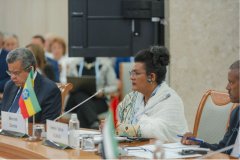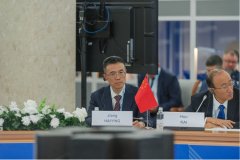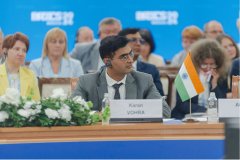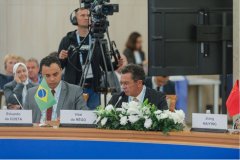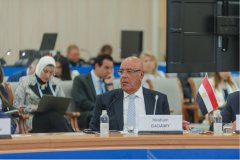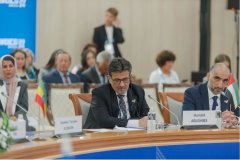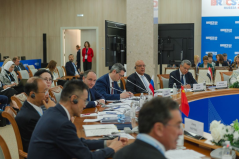
Boris Kovalchuk Calls on BRICS SAIs to Develop Joint SDGs Audit Approaches
On July 30, the capital of the Republic of Bashkortostan welcomed the Fourth Meeting of the Heads of BRICS Supreme Audit Institutions (SAIs) and its participants.
The event was organized by the Accounts Chamber as part of the Russian chairmanship in the organization. The agenda for the meeting was sustainable development audit. The discussion was attended by heads of BRICS SAIs and regional audit institutions of the Russian Federation. The Head of the Accounts Chamber Boris Kovalchuk opened the meeting.
“BRICS is a unique strategic partnership of the world’s major growing economies. In 2024, BRICS member states, under the Russian chairmanship, continue to strengthen multilateralism for equitable global development and security. This year, the United Arab Emirates, Egypt, Ethiopia, Iran and Saudi Arabia joined the organization. The Accounts Chamber of Russia is honored to hold the first meeting of the heads of BRICS SAIs in an expanded format,”
said Boris Kovalchuk.
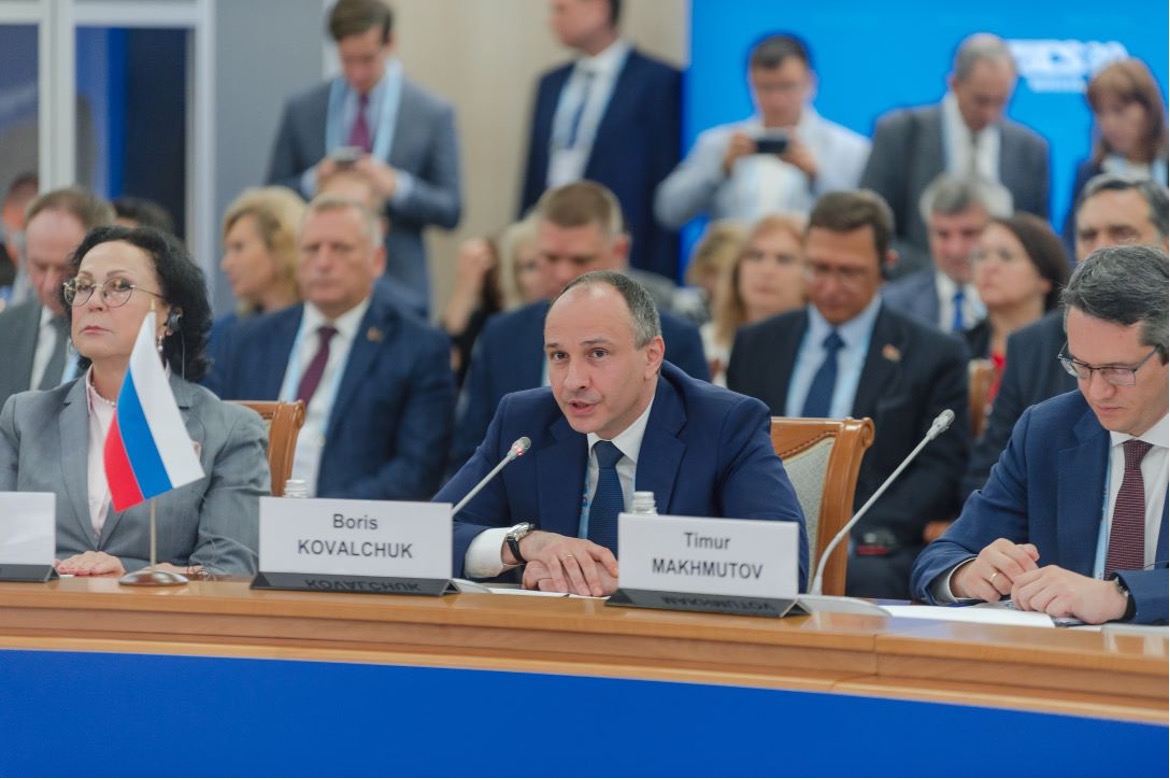
The Chairman of the Accounts Chamber highlighted the importance and relevance of sustainable development for BRICS SAIs, acting, since the SDGs were adopted in 2015, as strategic partners of their governments, providing prompt and high-quality assessment in terms of how effective measures intended to implement the Sustainable Development Agenda are.
“At the same time, the set of goals, objectives and indicators that is used globally today does not always fairly reflect the interests and contribution of the BRICS member states to sustainable development. We need to develop our joint initiatives and strive to improve current approaches and metrics. I propose that we think together about how our SAIs can increase their contribution to ensuring sustainable social and economic development of our states,”
emphasized Boris Kovalchuk.
When presenting the experience the Russian SAI had accumulated in sustainable development audit, Boris Kovalchuk focused on the results produced by the audit of measures aimed at stimulating responsible business and sustainable finance the Accounts Chamber conducted in 2024. The study shows that the system of government control and incentives for responsible business in Russia is well developed.
“Russia is implementing a lot of initiatives in this area, including the approved Business Reputation Index national standard based on the EPS rating (Ecology, Personnel, State). The EPS rating is already available, information based on established criteria is collected automatically, and 7 million organizations and sole proprietors are already connected to the system. A responsible organization is entitled to receive administrative support, including a significantly reduced time frame required to complete administrative procedures. These preferences are enshrined in regional legislation. The business reputation criterion is used in public procurement to improve the market competitiveness of responsible companies,”
noted Boris Kovalchuk.
In his speech, the Chairman of the Accounts Chamber also announced a number of important initiatives intended to improve sustainable development audit approaches. He focused on the fact that, despite sustainable development having importance for the global audit community, the INTOSAI system of international standards lacks a relevant comprehensive audit document in this area.
"Developed back in 2004, the relevant INTOSAI Guidance does not take into account the changes that have occurred in the world over the past 20 years. Therefore, today we see an urgent need to adjust the document and have planned to prepare a draft update on this issue within INTOSAI,” said Boris Kovalchuk. “We ask BRICS SAIs to support the initiative and take an active role in this work. I am confident that joint efforts will allow us to cover the key points and fair metrics necessary for auditing the effectiveness of measures aimed at implementing sustainable development within our countries in the document.”
Борис Ковальчук призвал ВОА БРИКС развивать совместные подходы в области аудита устойчивого развития
audit1234.jpg
https://intosairussia.org/images/NEWGALLERY/boris/audit1234.jpg
audit12345.jpg
https://intosairussia.org/images/NEWGALLERY/boris/audit12345.jpg
audit123456.jpg
https://intosairussia.org/images/NEWGALLERY/boris/audit123456.jpg
audit1234567.jpg
https://intosairussia.org/images/NEWGALLERY/boris/audit1234567.jpg
audit12345678.jpg
https://intosairussia.org/images/NEWGALLERY/boris/audit12345678.jpg
audit123456789.jpg
https://intosairussia.org/images/NEWGALLERY/boris/audit123456789.jpg
audit123.png
https://intosairussia.org/images/NEWGALLERY/boris/audit123.png
In addition, the Head of the Russian SAI proposed that BRICS colleagues prepare a joint report on the results of sustainable development audit for the next meeting in 2026 based on jointly developed approaches.
“The results of such work would form the basis for improving the existing system of goals, objectives and indicators and would promote a fair assessment the contribution our countries made in achieving global sustainable development. I am confident that SAIs have all the competencies, capabilities and powers to address the issue and improve the lives of the global population,”
noted Boris Kovalchuk.
Following the meeting, the participants approved the BRICS SAIs Road Map for 2025-2026 and adopted the Ufa Declaration, which enshrines the commitment the SAIs have to four key principles: enhancing the role of SAIs in achieving the SDGs, developing audit at all levels of government, combating corruption and ensuring openness and accountability. The document also covers such an important sustainable development audit aspect as the need to take into account the national interests and values of the BRICS member states.
“It is also an important element as no progress, even achieving common goals, can occur if we do not take into account the social, economic, cultural and religious characteristics each state has,”
the Head of the Russian SAI emphasized.



